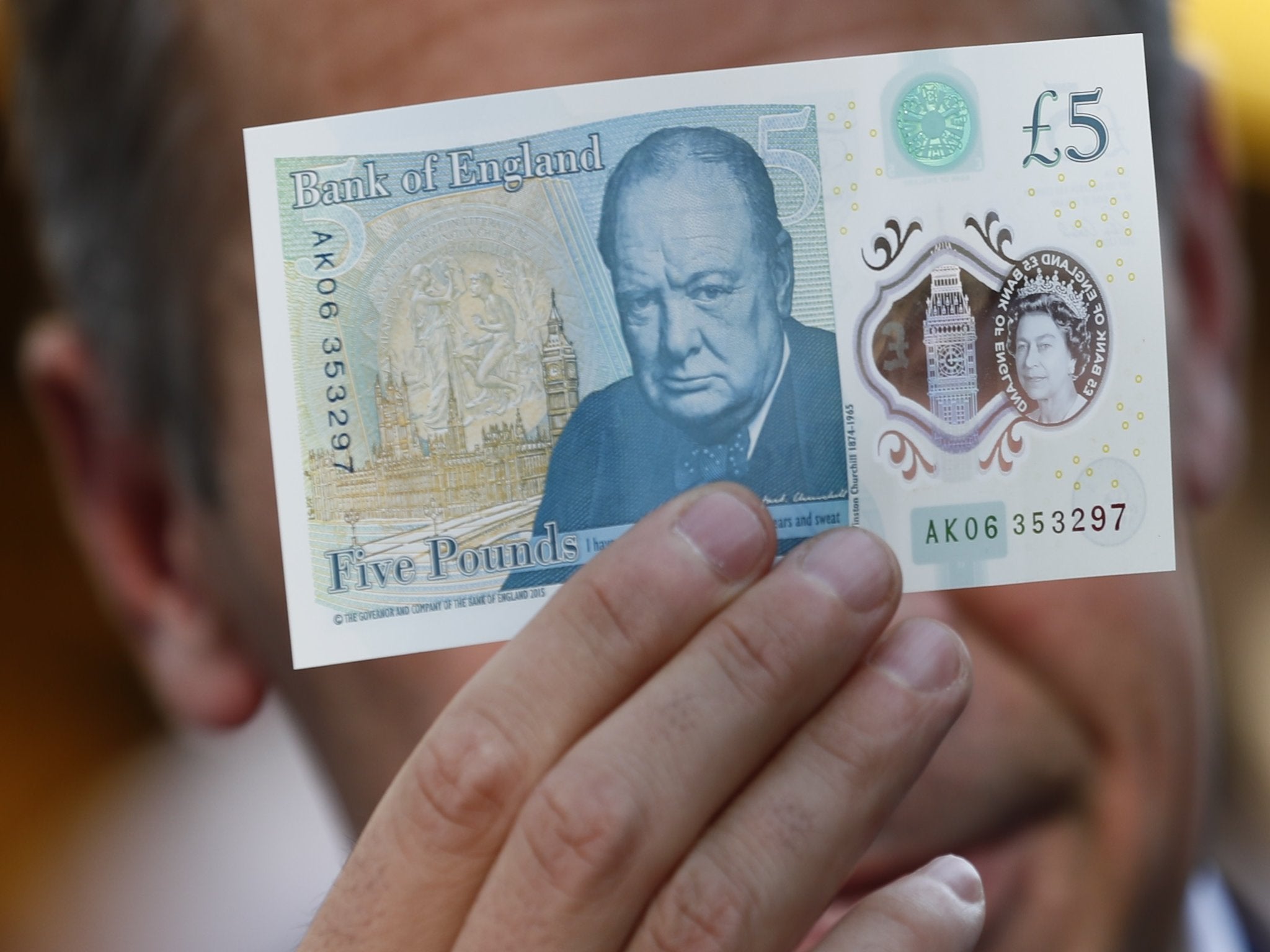Forget the fuss about the Bank of England’s new fiver. The truth is that cash has had its day
Cash was, no doubt, a brilliant and innovative new technology several thousands of years ago. Today it’s simply been superseded


Have you fondled the Bank of England’s new polymer fiver yet? I haven’t. And despite the buzz surrounding the note, it wouldn’t bother me terribly if I never did.
Cash is a pain. Finding pounds to feed a greedy parking meter? Having to run out to a cash machine because the little café refuses to let you pay with a debit card? Taking coins as change, half of which you’ll leave to moulder in some pointless jar, and the other half of which will knacker the lining of your pockets?
Is this really anyone’s idea of fun? We now know that Sports Direct boss Mike Ashley carries around rolls of £50 notes in his pockets like some kind of “Loadsamoney” throwback. So he’s OK. But for most people the demand for cash from vendors is pretty irksome.
And what makes it even more irritating is that it’s not even necessary anymore thanks to contactless payment technology for small transactions and online banking for larger ones. When indoor plumbing was rolled out we stopped making daily trips to the pump at the bottom of the street and lugging heavy buckets of water around the streets. So why do we still use inconvenient cash when it’s no longer a technical necessity?

Ken Rogoff, the Harvard economist, who argues in a new book that we should start to phase out cash is, for me, on the money. Consider who cash serves best. As Rogoff points out, there is around $4,200 in cash for every person in America. For the UK the figure is a less spectacular but still sizeable £1,200. Do you have £1,000 in cash on your person, or stashed somewhere in your home? If you do, without wishing to be rude, there’s a high chance that you’re either engaged in illegal activities or dodging the taxman.
Surveys by central banks show large denomination notes – $100, £50, €500 etc – are very rarely used by regular people. The large volumes in circulation are, by and large, the currency of the black economy, facilitating drug deals, people trafficking, money laundering, terrorism and tax evasion. If abolishing cash would make it easier for HMRC to detect and stamp out tax evasion, abolishing cash really ought to be on the progressive’s wish list.
What about the “unbanked”, those old or vulnerable folk who don’t have current accounts? The answer here is surely to “bank” them. Let the authorities furnish them with a very basic bank account and a debit card. There’s a strong financial inclusion case for doing this even if we kept cash forever.
Civil liberties? Don’t people have a right to pay for things in cash if they want to? Technology moves on. We all used to watch films on VHS tapes and there was, until a few years ago, an analogue TV signal. But the world’s final video player rolled off a Japanese production line earlier this year and analogue has been switched off for good.
Some might regard this as an infringement of the rights of those who want to watch videos or people who didn’t buy a digital TV. A more reasonable view is that sometimes change is unavoidable. Cash was, no doubt, a brilliant and innovative new technology several thousands of years ago. Today it’s simply been superseded.
What about the traceability of all digital transactions? Don’t people have the right to anonymity? The argument is overblown but, in any case, the good news for libertarians is that they can make use of digital crypto-currencies such as Bitcoin if they are really determined to transact in anonymity.
The case for moving away from cash on practical grounds is strong even without getting into the argument about the potential macroeconomic benefits, such as making monetary policy more effective by enabling central banks to turn interest rates negative without worrying that people will start to stash cash under the mattress.
None of this is very likely to happen any time soon of course. Cash and coins are tied up with ingrained feelings of national sovereignty and identity. I expect this column will have already inspired a sense of revulsion, perhaps even anger, in some readers. On top of this there’s the powerful popular belief that money has to have some tangible manifestation to be “real”, rather like the old doctrine that cash and coins must be exchangeable for gold to have any fundamental value.
So the best hope for those of us for whom cash is no great inviolable symbol of national freedom but an unnecessary inconvenience is that contactless payments will continue to spread rapidly and that, one day, the individual who insists on using cash will be as unwelcome as that shopper at the front of the long supermarket queue today who pulls out a big bag of pennies and starts slowly counting.
That will be the point when we can finally pull the plug on cash.
Join our commenting forum
Join thought-provoking conversations, follow other Independent readers and see their replies
Comments
Bookmark popover
Removed from bookmarks